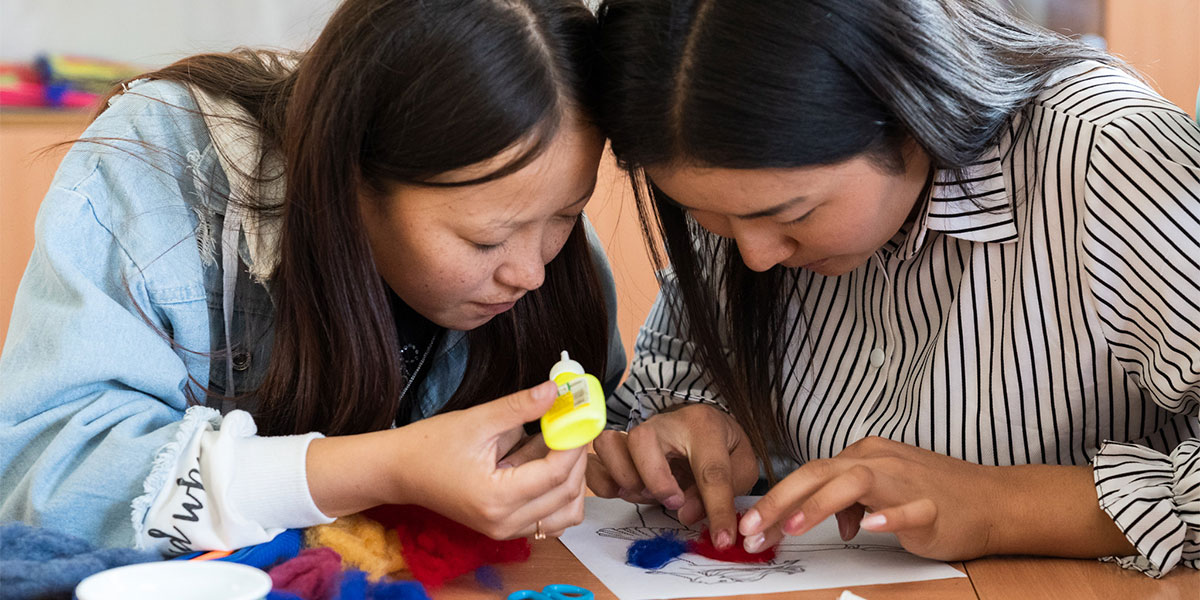Using Human-Centred Design to address educational challenges – video interview
How AKF and partners are using innovative new approaches to design effective and inclusive COVID-19 compliant education programmes

In 2019, working alongside a variety of government and foundation partners, the Aga Khan Foundation launched a large-scale, multi-country educational research initiative called Schools2030. Its vision is simple – to improve education equity and quality for all.
To be conducted over 10 years, across 1,000 schools in 10 countries, the programme is designed to search for ‘what works’ to improve learning outcomes with a focus on holistic learning. Crucially this is school-driven, ie from the bottom-up, rather than the top-down. Schools2030 will reach an anticipated 50,000 school children and will be able to amplify the innovative education solutions of 5,000 teachers and school leaders.
As part of this ongoing, iterative research, during the worldwide lockdown in April 2020, programme designers from across the world took part in a 12-week Human Centred Design course to tackle the challenge: How might we reimagine learning at home during COVID-19?
“Human Centred Design is trying to democratise the traditional design process… it is about putting the tools into the hands of the people most central to the problem.”
Katie Krummeck
Educational Designer
“If COVID has shown the world…what educators are doing and what students need, then my hope is that we are all responding with empathy to build back something better.”
Gray Garmon
Director for Centre of Integrated Design,
University of Texas at Austin
“Human Centred Design is trying to democratise the traditional design process… it is about putting the tools into the hands of the people most central to the problem.”
Katie Krummeck
Educational Designer
“If COVID has shown the world…what educators are doing and what students need, then my hope is that we are all responding with empathy to build back something better.”
Gray Garmon
Director for Centre of Integrated Design,
University of Texas at Austin
The course aims to help education designers develop new – or adapt existing – teaching methods, putting students and educators at the heart of the design process. Participants will then share the toolkit and skills they have developed with teachers and educators in their respective countries, equipping them to deliver quality learning that supports their students holistically.
In this interview, course facilitators Katie Krummeck and Gray Garmon, speak about what Human-Centred Design actually is, why they see it as so important to improving education outcomes, and how they are working with the team at Schools2030 to help embed these principles into the heart of the programme.
Katie Krummeck and Gray Garmon discuss the benefits of using HCD in an education context
0:00-15:14 Introductions and backgrounds of Katie and Gray
15:14–23:30 Design workshops for Schools2030, before and after COVID-19
23:30–33:06 Discussion around the pivotal ‘define’ and ‘generate’ phases of the design process
33:06–end Design thinking, empathy and the future of education
Schools2030 is a AKF’s new globally informed, locally rooted 10-year longitudinal action research and learning improvement programme working with 1000 pioneering pre-schools, primary schools, and secondary schools across 10 countries, searching for and supporting positive deviance about ‘what works’ to improve holistic quality learning for all.


Support our work Your donations are helping us build a future where we all thrive together.